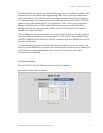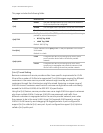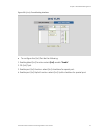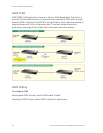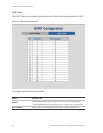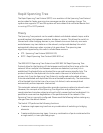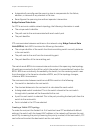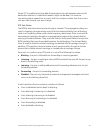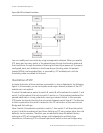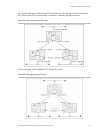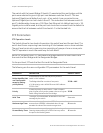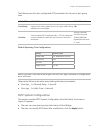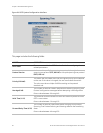Chapter 4: Web-Based Management
GE-DS-82 and 82-PoE Ethernet Managed Switch User Manual 85
When STP is enabled using the default parameters, the path between source and
destination stations in a switched network might not be ideal. For instance,
connecting higher-speed links to a port that has a higher number than the current
root port can cause a root-port change.
STP Port States
The BPDUs take some time to pass through a network. This propagation delay can
result in topology changes where a port that transitioned directly from a Blocking
state to a Forwarding state could create temporary data loops. Ports must wait for
new network topology information to propagate throughout the network before
starting to forward packets. They must also wait for the packet lifetime to expire for
BPDU packets that were forwarded based on the old topology. The forward delay
timer is used to allow the network topology to stabilize after a topology change. In
addition, STP specifies a series of states a port must transition through to further
ensure that a stable network topology is created after a topology change.
Each port on a switch using STP exists is in one of the following five states:
• Blocking - the port is blocked from forwarding or receiving packets.
• Listening - the port is waiting to receive BPDU packets that may tell the port to go
back to the blocking state.
• Learning - the port is adding addresses to its forwarding database, but not yet
forwarding packets.
• Forwarding - the port is forwarding packets.
• Disabled - the port only responds to network management messages and must
return to the blocking state first.
A port transitions from one state to another as follows:
• From initialization (switch boot) to blocking.
• From blocking to listening or to disabled.
• From listening to learning or to disabled.
• From learning to forwarding or to disabled.
• From forwarding to disabled.
• From disabled to blocking.



